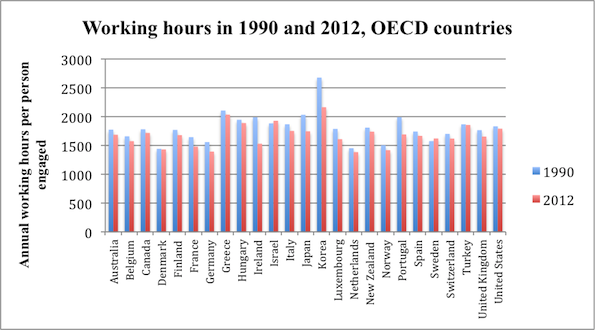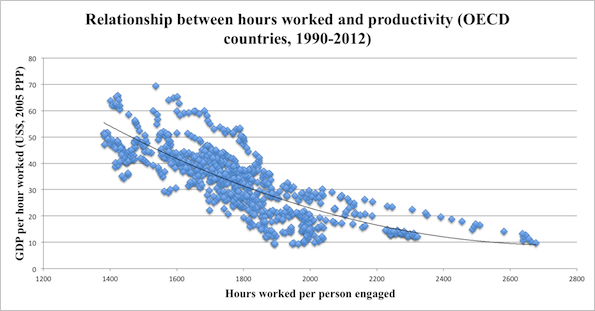The Economist blogged on a same topic that I have explored in an earlier blogpost here. That showed data from the OECD that in a vast majority of its member countries, people are working fewer hours than they did in 1990.

While people do generally work less hours in these OECD countries, the reduction in hours is hardly significant. The only two exceptions are Korea and Portugal. Korea has successfully grow its economy while cutting the working hours of its average people by an astonishing 500 hours per year, although Koreans still work the longest hours among the OECD countries. Portuguese, on the other hand, are working less too, but they probably failed to raise their productivity by a even faster pace, and that is how they find themselves in economic turmoil now.

I’m personally more interested in a related article by the Financial Times on how you can tell you are a workaholic.
The Bergen Work Addiction Scale was presented last year in the Scandinavian Journal of Psychology and uses seven basic criteria to identify work addiction. The questions are scored on the following scale: (1) Never; (2) Rarely; (3) Sometimes; (4) Often; and (5) Always.
● You think of how you can free more time to work.
● You spend much more time working than initially intended.
● You work in order to reduce feelings of guilt, anxiety, helplessness and depression.
● You have been told by others to cut down on work without listening to them.
● You become stressed if you are prohibited from working.
● You de-prioritise hobbies, leisure activities and exercise because of your work.
● You work so much that it has influenced your health negatively.
According to the study, scoring “often” or “always” on at least four of the seven questions suggests you may have a problem.
Post a Comment